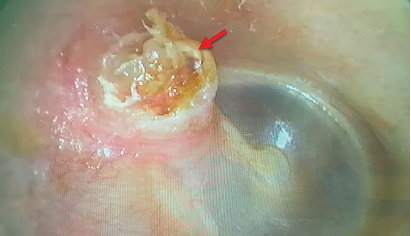A transcanal endoscopic approach was performed with the aim of removing an epitympanic cholesteatoma without the transmastoid approach, and to reconstruct the scutum after obliteration of the epitympanum at the same time.


A transcanal endoscopic approach was performed with the aim of removing an epitympanic cholesteatoma without the transmastoid approach, and to reconstruct the scutum after obliteration of the epitympanum at the same time.

Sterotactic radiosurgery (SRS) for the treatment of VS can be associated with increased balance symptoms, often within the first six months after treatment.

The role and timing of routine bedside layngoscopy following thyroidectomy remain controversial.

A new clinical trial aims to find out if sentinel lymph node biopsy or elective neck dissection is the best management option for early-stage oral cancer.

As evidence linking hearing loss to cognitive decline mounts, researchers and clinicians are starting to explore whether automated, self-administered cognitive screening tests should be added to routine workups of patients seen in busy otolaryngology practices.

From infectious illnesses in steep decline due to COVID-19 to a new subcertification category, leaders in pediatric otolaryngology discussed trends in the field during the Combined Otolaryngology Spring Meetings.
BRP and ESP procedure outcomes are comparable in the improvement of obstructive sleep apnea (OSA) with palatal collapse, although further trials and long-term follow-up are needed.
Injury to the recurrent laryngeal nerve (RLN) during surgery impacts on the patient’s ability to phonate, breathe, and swallow.
Normative data for laryngeal adductor reflex (LAR) response rates to low, medium, and high stimulation forces are useful to assess sensory dysfunction in a variety of laryngopharyngeal disorders.
LW arrays are preferable to PM arrays for minimizing clinically relevant intracochlear trauma in cochlear implantation.